By Anchal Bhateja
While describing Article 142 of the Constitution of India as a “nuclear missile against democratic forces, available to the judiciary 24×7,” Vice President Jagdeep Dhankhar voiced strong concerns over the judiciary’s drift into executive and legislative functions.
The trigger for his remarks was the judgement that the Supreme Court delivered on April in State of Tamil Nadu v. Governor of Tamil Nadu. The dispute arose after the Tamil Nadu Governor, R.N. Ravi, withheld assent to ten bills passed by the state legislature without offering any reasons or returning them for reconsideration. When the legislature re-enacted the bills and sent them back, the Governor instead reserved them for the President’s consideration.
The Court held that such a conduct violated Article 200 of the Constitution, which permits the Governor to either assent, withhold (and return), or reserve a bill—but not indefinitely delay. Invoking its extraordinary powers under Article 142, the Court deemed the ten bills as having received assent.
Vice President Dhankar questioned the constitutional basis of this judgment, and warned that the judiciary was turning into a “super parliament” that believed that it could dictate terms to the constitutional functionaries. This amounted to a breach of the doctrine of separation of powers, and emphasised that it was especially unsettling as the judiciary consistently resists attempts when other branches try to check its powers and processes.
In a similar vein on Saturday, Members of Parliament from the Bharatiya Janata Party, Nishikant Dubey and Dinesh Sharma launched a sharp attack on the Supreme Court, accusing it of judicial overreach and undermining the Parliament’s authority. “If the Supreme Court has to make laws, then Parliament should be shut down,” Dubey said. He accused the judiciary of stepping into the roles of the legislature and executive, citing rulings like the decriminalisation of homosexuality and striking down of Section 66(A) of the IT Act as examples.
Referring to the Court’s handling of the Waqf (Amendment) Act, Dubey alleged a double standard compared to the Ram Mandir case, and even claimed, “The Supreme Court is responsible for inciting religious wars in the country.”
Dinesh Sharma added that no one, not even the judiciary, can question the President or direct Parliament.
The most pressing question that props up amidst this unidirectional war of words against the Supreme Court is this: can constitutional officeholders, who are expected to act as neutral guardians of the Constitution, publicly question the provisions of the Constitution and actions of the judiciary in such a brazen and pointed manner?
There has been a stir in political circles. While addressing a press conference, Senior Advocate Kapil Sibal criticised the Vice President for making such politically charged remarks to undermine and attack the judiciary and stated that it was unprecedented. In defense of the Supreme Court’s judgement, Sibal emphasised that it was imperative for the judiciary to intervene when the executive was functioning in an opaque manner by sitting on the bills indefinitely without any explanation. The General Secretary of the Communist Party of India, D. Raja, also stated that it was an attempt to discredit the judiciary and weaken its independence.
As for the two MPs, the BJP leadership has distanced itself from their stances, stating that it was their personal opinions. It also re-affirmed its respect for the decisions of the judiciary.
Article 19(1)(a) of the Constitution guarantees the right to freedom of speech and expression. However, this right is subject to reasonable restrictions, including contempt of court, to preserve the authority and impartiality of the judiciary.
Legislatively speaking, Section 2(c) of the Contempt of Courts Act, 1971 defines criminal contempt as, among other things, publication of words that “lower or tend to lower the authority of a court.”
The Supreme Court’s rulings since the 1970s show that it has been sensitive to statements that affect its credibility in the eyes of the public. One of the earliest and most illustrative cases is that of E.M.S. Namboodiripad, the then Chief Minister of Kerala, who made disparaging remarks against the judiciary. His statements, alleging that the courts favoured the rich and were influenced by class interests, were considered an attempt to undermine public confidence in the judicial system, and thus, deemed to be in contempt of court.
In Re-Arundhati Roy (2002), the Supreme Court held that honest criticism of the working of the judges and comments on the way judiciary functions shall not fall within the ambit of contempt, so long as they are made in good faith. Again in Hari Singh Nagra v. Kapil Sibal (2010), the Court acknowledged fair criticism of the judiciary as being valid, but cautioned against undermining its authority. In 2020, in a case against advocate Prashant Bhushan, the Court adopted a stricter stance, holding that remarks creating “disaffection or disrespect” for the judiciary could be considered contempt.
Allegations such as the Supreme Court using “nuclear missile of Article 142” to undermine democracy or being responsible for triggering religious wars in the country resemble the manner of rhetoric which is adopted in political rallies. They do not resemble as “fair criticism” or “good faith” comments. While the Vice President is procedurally shielded from court appearances under Section 133 of Code of Civil Procedure, 1908 by virtue of his office, there is a substantive possibility of a contempt action in such cases, as the aforesaid statements are not only politically coloured, but also have a real potential to negatively impact the perception of the judiciary in the eyes of the common masses.
Besides the legal constraints on such statements, there is also a weightier moral challenge. As per Article 69, the Vice-President affirms to “preserve, protect and defend the Constitution and the law.”
Likewise, MPs in India take an oath to bear true faith and allegiance to the Constitution, uphold the sovereignty and integrity of India, and faithfully discharge their duties, as mandated under Article 99 read with Schedule III of the Constitution.
These affirmations are not mere ceremonial fluff. They impose a solemn duty on the constitutional functionaries to respect the balance and dignity of the Constitution and all constitutional institutions. Additionally, these offices carry not only legal responsibilities but also an expectation of sophistication, restraint, and elegance in conduct.
Thus, levelling of politically charged remarks against the Supreme Court is not only at odds with the constitutional duty enshrined in the oath of office, but also betrays the dignity and responsibility that comes by virtue of holding public office.
The judiciary, unlike the legislature and the executive, does not derive its authority from mass mobilisation, political rallies, or control over administrative machinery. It has no army to enforce its decisions, no monetary resources to appease people, and no electorate to appeal to. Its only real sources of strength are public trust and its intrinsic integrity. These are what lend legitimacy to its pronouncements and ensure compliance with its rulings.
Such political attacks erode public trust in the judiciary, striking at the very core of its legitimacy and independence.
What makes them particularly insidious is the judiciary’s inability to respond outside the courtroom. Bound by strict ethical codes—such as the Restatement of Values of Judicial Life and the Bangalore Principles of Judicial Conduct—judges cannot participate in political debates, hold press conferences, or engage in rhetorical duels to defend themselves. This institutional restraint, essential for preserving judicial neutrality, ironically leaves the courts exposed to one sided political narratives.
Thus, political leaders must act with measured restraint. Dragging the judiciary into partisan crossfire not only threatens the delicate balance among constitutional institutions but also risks alienating the courts from the very people whose faith sustains them.
There is an overwhelming consensus across the board that excessive closeness between the judiciary and the executive can erode public trust in the judicial system. Instances like a judge publicly praising a political leader while still on the bench, or a judge resigning to immediately contest elections, or a judge accepting post judicial appointment as a political favour – can cast doubt on the integrity of the institution.
Yet, we must also remember that open hostility between the branches of government is a recipe for democratic instability and the death of rule of law. What democracy needs is mutual respect with clearly defined boundaries. Notably, during an event marking Constitution Day in 2022, the Union Law Minister Kiren Rijiju urged that the judiciary and the executive, which he likened to “brothers,” must work together instead of engaging in conflict. It is time these words translated into routine behaviour. (IPA Service)
Courtesy: The Leaflet
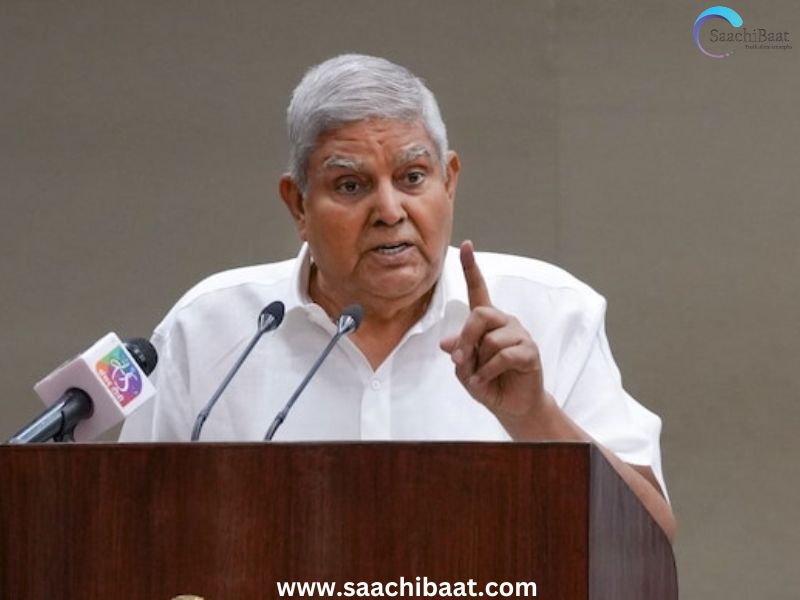
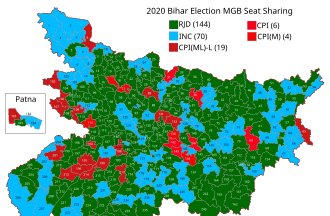
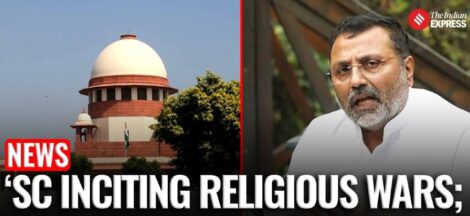
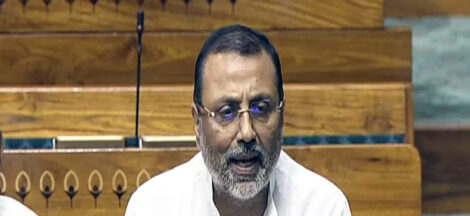
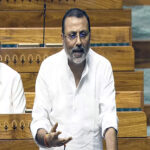 Is Narendra Modi Airing His Views Through Nishikant Dubey Against Supreme Court?
Is Narendra Modi Airing His Views Through Nishikant Dubey Against Supreme Court? 